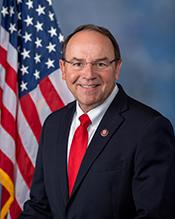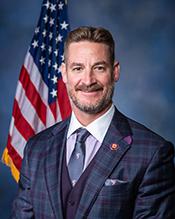0
0
0
Repeal CFPB Act
12/15/2023, 3:57 PM
Summary of Bill HR 2937
Bill 118 hr 2937, also known as the Repeal CFPB Act, is a piece of legislation introduced in the US Congress. The bill aims to repeal the Consumer Financial Protection Bureau (CFPB), which was established in 2010 in response to the financial crisis of 2008.
The CFPB is an independent agency tasked with protecting consumers from unfair, deceptive, and abusive practices in the financial industry. It has the authority to regulate financial institutions, enforce consumer protection laws, and educate consumers about their rights.
Supporters of the Repeal CFPB Act argue that the CFPB is too powerful and lacks accountability to Congress. They believe that the agency's regulations stifle innovation and harm small businesses. They also argue that the CFPB's funding structure, which is not subject to Congressional oversight, is unconstitutional. Opponents of the bill, on the other hand, argue that the CFPB plays a crucial role in protecting consumers from predatory financial practices. They believe that repealing the agency would leave consumers vulnerable to fraud and abuse by financial institutions. The Repeal CFPB Act has sparked a heated debate in Congress, with lawmakers on both sides of the aisle voicing their opinions on the bill. It remains to be seen whether the bill will pass and what the implications of its passage would be for consumers and the financial industry.
The CFPB is an independent agency tasked with protecting consumers from unfair, deceptive, and abusive practices in the financial industry. It has the authority to regulate financial institutions, enforce consumer protection laws, and educate consumers about their rights.
Supporters of the Repeal CFPB Act argue that the CFPB is too powerful and lacks accountability to Congress. They believe that the agency's regulations stifle innovation and harm small businesses. They also argue that the CFPB's funding structure, which is not subject to Congressional oversight, is unconstitutional. Opponents of the bill, on the other hand, argue that the CFPB plays a crucial role in protecting consumers from predatory financial practices. They believe that repealing the agency would leave consumers vulnerable to fraud and abuse by financial institutions. The Repeal CFPB Act has sparked a heated debate in Congress, with lawmakers on both sides of the aisle voicing their opinions on the bill. It remains to be seen whether the bill will pass and what the implications of its passage would be for consumers and the financial industry.
Congressional Summary of HR 2937
Repeal CFPB Act
This bill repeals the Consumer Financial Protection Act of 2010, which established the Consumer Financial Protection Bureau.
Current Status of Bill HR 2937
Bill HR 2937 is currently in the status of Bill Introduced since April 27, 2023. Bill HR 2937 was introduced during Congress 118 and was introduced to the House on April 27, 2023. Bill HR 2937's most recent activity was Referred to the House Committee on Financial Services. as of April 27, 2023
Bipartisan Support of Bill HR 2937
Total Number of Sponsors
1Democrat Sponsors
0Republican Sponsors
1Unaffiliated Sponsors
0Total Number of Cosponsors
0Democrat Cosponsors
0Republican Cosponsors
0Unaffiliated Cosponsors
0Policy Area and Potential Impact of Bill HR 2937
Primary Policy Focus
Finance and Financial SectorComments
Sponsors and Cosponsors of HR 2937
Latest Bills
Protecting Our Courts from Foreign Manipulation Act of 2025
Bill HR 2675December 11, 2025
Tipped Employee Protection Act
Bill HR 2312December 11, 2025
A bill to redesignate the National Historic Trails Interpretive Center in Casper, Wyoming, as the "Barbara L. Cubin National Historic Trails Interpretive Center".
Bill S 790December 11, 2025
Mississippi River Basin Fishery Commission Act of 2025
Bill HR 1514December 11, 2025
Litigation Transparency Act of 2025
Bill HR 1109December 11, 2025
Providing for consideration of the bill (H.R. 2550) to nullify the Executive Order relating to Exclusions from Federal Labor-Management Relations Programs, and for other purposes.
Bill HRES 432December 11, 2025
Southcentral Foundation Land Transfer Act of 2025
Bill HR 3620December 11, 2025
Enduring Justice for Victims of Trafficking Act
Bill S 2584December 11, 2025
VSAFE Act of 2025
Bill S 2683December 11, 2025
Veterans National Traumatic Brain Injury Treatment Act
Bill S 2737December 11, 2025
Repeal CFPB Act
Bill S 1363March 11, 2024


